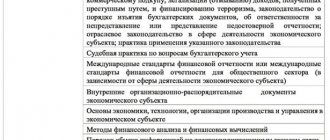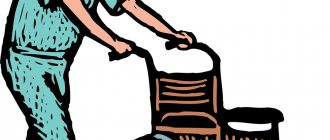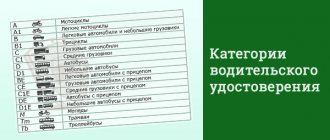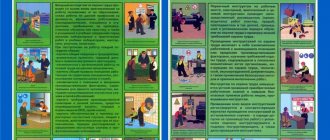What are the qualification requirements for the head nurse?
Unified qualification reference book for positions of managers, specialists and other employees (US), 2017 Section “Qualification characteristics of positions of workers in the healthcare sector”
The section was approved by Order of the Ministry of Health and Social Development of the Russian Federation dated July 23, 2010 N 541n
I. General provisions
II.
Management positions Chief physician (president, director, head, manager, chief) of a medical organization Head (chief physician, director, chief) of a federal budgetary institution of the Federal Service for Surveillance on Consumer Rights Protection and Human Welfare Director of a hospital (home) nursing care, hospice Director (manager) of a pharmaceutical organization Head of a dairy kitchen Deputy chief physician for the medical unit of an emergency medical station Chief nurse (chief midwife, chief paramedic) Head of a medical warehouse of a mobilization reserve Head of a pharmacy warehouse Head of a structural unit (department, department, laboratory, office, detachment ) - specialist doctor
III.
Positions of specialists Positions of specialists with higher medical and pharmaceutical education Specialist doctor Obstetrician-gynecologist Anesthesiologist-reanimatologist Geneticist Dermatovenereologist Doctor - pediatric surgeon Infectious disease doctor Clinical laboratory diagnostics doctor Neonatologist General practitioner (family doctor) Oncologist Doctor Otorhinolaryngologist Ophthalmologist Doctor Pediatrician General Hygiene Doctor Sports Medicine Doctor Psychiatrist Radiologist General Practitioner Local Therapist Local Therapist of a shop medical district Traumatologist-orthopedist Doctor phthisiatrician Physician surgeon Endocrinologist Epidemiologist Doctor-specialist of the federal budgetary institution of the Federal Service for Surveillance on Consumer Rights Protection and Human Welfare Emergency physician Doctor-statistician Doctor-methodologist Doctor-pathologist Doctor-forensic expert Pharmacist Positions of specialists with higher professional qualifications education Biologist Zoologist, entomologist Instructor-methodologist in physical therapy Medical psychologist Medical physicist Chemist-expert of a medical organization Forensic expert (expert biochemist, expert geneticist, expert chemist) Expert physicist in monitoring sources of ionizing and non-ionizing radiation Embryologist Positions of specialists with secondary medical and pharmaceutical education Dentist Medical technologist Midwife Paramedic Paramedic-driver of emergency medical services Paramedic (emergency medical care) Paramedic laboratory technician (medical laboratory technician) Assistant: epidemiologist, parasitologist, child and adolescent hygiene doctor, food hygiene, occupational hygiene doctor, hygienic education doctor, municipal hygiene doctor, general hygiene doctor, radiation hygiene doctor Assistant entomologist Pharmacist Nurse District nurse Nurse of a general practitioner (family doctor) Ward nurse (guard nurse) Treatment room nurse Dressing room nurse Operating room nurse Anesthetist nurse Physiotherapy nurse Massage nurse Dietary nurse Visiting nurse Admissions department nurse (reception room) Nurse for receiving calls and transferring them to visiting teams Sterilization nurse Medical optician -optometrist Dental technician Laboratory assistant X-ray technician Physical therapy instructor Disinfector instructor Occupational therapy instructor Hygiene education instructor Medical statistician Medical registrar Medical disinfector Optical salesman Dental hygienist
IV.
Positions of junior medical and pharmaceutical personnel Junior nurse for patient care Junior pharmacist Sister-housekeeper Packer Nurse Nurse Driver
V. Positions of other personnel in medical workshops at medical organizations
Instructor of industrial training for workers in mass professions
I. GENERAL PROVISIONS
1. The section “Qualification characteristics of positions of workers in the healthcare sector” of the Unified Qualification Directory of Positions of Managers, Specialists and Employees (hereinafter referred to as the UKS) is designed to facilitate the correct selection and placement of personnel, improve their business qualifications, division of labor between managers, specialists, and ensure unity approaches to determining the job responsibilities of these categories of workers and the qualification requirements for them and consists of five sections: I - “General provisions”; II - “Managerial positions”; III - “Positions of specialists”; IV - “Positions of junior medical personnel”; V - “Positions of other personnel of labor therapy workshops at medical organizations.”
2. The qualification characteristics contained in the section “Qualification characteristics of positions of workers in the healthcare sector” of the EKS (hereinafter referred to as the qualification characteristics) are used as regulatory documents and also serve as the basis for the development of job descriptions containing a specific list of job responsibilities, taking into account the characteristics of the workers’ work medical organizations. The titles of positions of specialists with higher medical and pharmaceutical education are established in accordance with the Qualification requirements for specialists with higher and postgraduate medical and pharmaceutical education in the field of healthcare, approved in the prescribed manner by the Ministry of Health and Social Development of Russia. For example, the job title “physician-therapist” corresponds to the medical specialty “therapy.”
The titles of the positions of medical specialists and pharmacist specialists are established in accordance with the names of medical and pharmacist specialties, the nomenclature of which is approved in the prescribed manner.
The title of the position “laboratory doctor” is retained for specialists with higher professional (non-medical) education hired for this position before October 1, 1999.
In the event that a specialist doctor (pharmacist) has a break in work in his specialty for more than 5 years or changes the profile of a specialty that requires special training and qualifications, he is appointed to the position of a trainee doctor (trainee pharmacist) for the period of undergoing professional retraining in the established order in order to obtain special knowledge, skills and abilities necessary for independent work as a medical specialist (pharmacist), and obtain a certificate in the relevant specialty.
During this period of time, he can perform official duties provided for by the qualification characteristics of a medical specialist (doctor - specialist of an institution of the state sanitary and epidemiological service, pharmacist), only under the guidance of a medical specialist (doctor - specialist of an institution of the state sanitary and epidemiological service, pharmacist) who has a certificate of a specialist in the relevant specialty, answering equal to him for his actions.
3. The titles of the positions of deputy heads of a medical organization (chief physician, director, manager, chief) are supplemented by the name of the section of work over which he supervises. For example, “deputy chief physician for medical affairs,” “deputy chief physician for nursing staff,” etc.
The titles of the positions of the heads of structural units (divisions, divisions, laboratories, offices, detachments, etc.) are supplemented by the name of the medical position corresponding to the specialty in the profile of the structural unit. For example, “the head of the surgical department is a surgeon.”
4. The qualification characteristics of each position contain three sections: “Job responsibilities”, “Must know” and “Qualification requirements”.
The “Job Responsibilities” section establishes a list of basic functions that can be assigned to an employee holding this position, taking into account the technological homogeneity and interconnectedness of the work and the professional education received.
The “Must Know” section contains the basic requirements for the employee in relation to special knowledge, as well as knowledge of legislative and other regulatory legal acts, regulations, instructions and other documents, methods and means that the employee must be able to use when performing job duties.
The section “Qualification Requirements” defines the levels of required professional education of an employee necessary to perform the job duties assigned to him, as well as the required work experience. The levels of required professional training specified in the section “Qualification Requirements” are given in accordance with the Law of the Russian Federation “On Education” dated July 10, 1992 N 3266-1 (Collected Legislation of the Russian Federation, 1996, N 3, Art. 150) and other regulatory legal acts.
5. The job title “senior” is established provided that the specialist supervises the performers subordinate to him.
6. Persons who do not have the appropriate additional professional education or work experience established by the qualification requirements, but have sufficient practical experience and perform their job duties efficiently and in full, on the recommendation of the certification commission of a medical organization, as an exception, may be appointed for the relevant positions as well as persons with special training and the necessary work experience.
The employer takes measures for further professional training of the mentioned persons.
7. In medical organizations, the names of the positions: “midwife”, “nurse”, “nurse”, “packer”, replaced by male persons, are named accordingly: “obstetrician”, “medical brother (nurse)”, “orderly”, “ packer."
During the inspection, violations were revealed...:
- in violation of subparagraph “c” of paragraph 4 of the Regulations, the head - General Director V.L. Sokolov. (order dated 09/05/2012 N 08-k) there is no higher medical education, Deputy General Director for Medical Work O.I. Ryabova. (order dated September 16, 2012 N 09/K, employment contract dated September 16, 2012) there is no additional professional education and a specialist certificate in the specialty “health care organization and public health”;
- in violation of subparagraph “d” of paragraph 4 of the Regulations, the Deputy General Director for Medical Work Ryabova O.I. work experience in the specialty “surgical dentistry” of at least 5 years has not been confirmed;
...The results of the inspection are recorded in protocol No. 1303-r dated November 21, 2013 on an administrative offense, liability for which is provided for in Part 4, Article 14.1 of the Code of Administrative Offenses of the Russian Federation.
Considering the claim made in the case, the courts of two instances recognized the fact of the commission of the imputed offense by the company as documented. The event and the elements of the offense are confirmed by the materials of the administrative case, including the inspection report and the protocol on the administrative offense...
Taking into account these circumstances, the cassation court considers it lawful to impose an administrative fine on the company within the sanction of Part 4 of Article 14.1 of the Code of Administrative Offenses of the Russian Federation.
...The company's references to obtaining a license on a legal basis and in accordance with the requirements of the law on the date of its receipt do not affect the legality of bringing to administrative responsibility. The circumstances of obtaining a license cannot be established within the framework of this dispute. The courts established that at the time of the inspection, the company was carrying out activities in gross violation of the conditions stipulated by the special permit (license)…
- The company’s assertion that its actions did not constitute an offense is rejected as aimed at re-evaluating the circumstances of the case established by the courts of two instances.”
Resolution of the Eleventh Arbitration Court of Appeal dated February 13, 2014 in case No. A55-24619/2013
“From the case materials it is clear that at the time of the inspection, the management of LOTOS LLC was carried out by the general director..., who has a higher education diploma with the qualification “manager” in the specialty “nursing”... and work experience in the specialty of less than 5 years.
From the presented... documents it is clear that... holds the position of director, her responsibilities include direct management of the financial and economic activities of the company in providing medical services to the population, resolving issues that require special knowledge in the medical field.
The court of first instance rightly rejected the company's argument about the possibility that its current sole executive body does not meet the requirements for the position.
The regulation on licensing of medical activities does not provide for any exceptions from the requirements for the head of a medical organization, who is in this case a special subject, regardless of decisions of other bodies, including his personal ones, as the sole executive body of the company.
The job description of the deputy director of LOTOS LLC for medical affairs presented by the company... are internal acts of the organization that do not exempt subjects of medical activities from compliance with legal requirements in the field of licensing of certain types of activities.”
Similar conclusions are contained in the Resolution of the Arbitration Court of the Far Eastern District dated March 5, 2020 in Case No. F03-213/2015: “The administrative body conducted an on-site unscheduled inspection ... of the compliance of the medical activities carried out by the company with the established licensing requirements and conditions. As a result of the audit, it was established that the director of the company, which is a medical organization, does not have a higher medical education and a certificate of a specialist in healthcare organization and public health. The violation was recorded in the inspection report... Based on this fact, the Ministry of Health in relation to the society... drew up a protocol... on an administrative offense, liability for which is provided for in Part 4 of Article 14.1 of the Code of Administrative Offenses of the Russian Federation.”
Important!
The court drew attention to the fact that the director’s lack of higher medical education and a specialist certificate in the specialty “health care organization and public health,” as both courts rightly pointed out, creates a threat of harm to the life and health of citizens.
“...The courts have established and the case materials confirm that, in violation of the above rules of law, the director of the company, which is a medical organization, Ezhevskaya E.V. does not have a higher medical education or a certificate as a specialist in healthcare organization and public health.
Since non-compliance with the requirement established by the Regulations on licensing of medical activities that the relevant managers responsible for the implementation of medical activities have a higher medical education and a certificate of a specialist in the specialty “health care organization and public health”, as both courts reasonably indicated, creates a threat of harm to life, health of citizens and, therefore, is a gross violation of licensing requirements when conducting medical activities, then bringing the company to administrative liability provided for in Part 4 of Article 14.1 of the Code of Administrative Offenses of the Russian Federation is lawful.”
On qualification requirements for employees with secondary medical and pharmaceutical education
162; 2006, N 19, art. 2080; 2008, N 11 (1 part), Art. 1036; N 15, art. 1555; N 23, Art. 2713; N 42, art. 4825; N 46, art. 5337; N 48, art. 5618; 2009, N 2, art. 244; N 3, art. 378; N 6, art. 738; N 12, art. 1427, 1434; N 33, art. 4083, 4088; N 43, art. 5064; N 45, art. 5350; 2010, N 4, art. 394; N 11, art. 1225; N 25, art. 3167; N 26, Art. 3350), I order:
Approve the Unified Qualification Directory of Positions for Managers, Specialists and Employees, section “Qualification Characteristics of Positions of Workers in the Healthcare Sector” in accordance with the Appendix.
Registered with the Ministry of Justice of the Russian Federation on August 25, 2010.
Registration N 18247
Specialist positions
Order No. 541n provides qualification characteristics for:
- Manager positions;
- Positions of specialists (with higher medical, higher professional and secondary medical education);
- Junior medical staff positions;
- Positions of other personnel of labor therapy workshops at medical organizations.
The titles of positions of specialists with higher medical education are established in accordance with the Qualification requirements for them, approved by the new Order of the Ministry of Health of Russia dated 08.10.2015 No. 707n, which came into force on 07.11.2015 (previously the Order of the Ministry of Health and Social Development of Russia dated 07.07.2009 No. 415n was in force). For example, the job title “physician-therapist” corresponds to the medical specialty “therapy.”
The names of the positions of medical specialists are established in accordance with the names of medical specialties, the nomenclature of which is approved in the prescribed manner (Order of the Ministry of Health of the Russian Federation dated October 7, 2015 No. 700n (previously the Order of the Ministry of Health and Social Development of the Russian Federation dated April 23, 2009 No. 210n was in force, which lost legal force on November 27, 2015), Order of the Ministry of Health and Social Development of the Russian Federation dated April 16, 2008 No. 176n).
An error occurred.
Responsibilities of a nurse in the Klintsovsk Central City Hospital
Actions of the ward nurse of the surgical department. Working in a treatment room. Compliance with sanitary regulations in the department. Infection safety of healthcare workers. Algorithm for bandaging. Quality control of pre-sterilization cleaning.
practice report, added 04/12/2014
General principles and norms of medical ethics and deontology in nursing. Code of Ethics for Russian Nurses. A comprehensive study of issues of ethics and deontology in nursing care for patients using the example of a neurosurgical department.
thesis, added 11/14/2017
Dental health of residents of the Krasnoyarsk Territory as a significant factor in the health status of the population. Schedule of the dental department. Directions of activity of a nurse in the orthopedic department. Sanitary educational work.
practice report, added 07/11/2011
The structure of the therapeutic department, structure and equipment, internal routine and daily routine. Equipment of the guard nurse's workplace, her job responsibilities, qualification requirements. Manipulations performed in the department.
thesis, added 11/10/2014
Organization of the activities of the intensive care unit, the work of guard nurses, principles of patient care. Basic recommendations for the professional activity of a nurse in the intensive care unit.
course work, added 06/23/2015
History of nursing. Information about the hospital. Work in the therapy department. Job responsibilities of a ward nurse. Caring for patients with the first regimen. Setting up intramuscular injections. Disinfection and disinfection methods. Sterilization.
certification work, added 10/19/2008
Characteristics of the treatment and prevention institution. Objectives and personnel composition of the neonatal pathology department. Rules for caring for premature babies. The nurse's workplace and her responsibilities. Organization of pharmaceutical order.
certification work, added 01/29/2014
The structure and specifics of the work of the children's department of pulmonary tuberculosis in the Khabarovsk Territory. Review of features of treatment of tuberculosis in children and adolescents. Job description of a ward nurse. Sanitary-hygienic and anti-epidemic regime.
course work, added 04/06/2017
Responsibilities of a nurse in the admission department. Pre-medical examination of the patient. Rules for prescribing and storing medicines. Functions of a nurse in the infectious diseases department. Gastric lavage technique. Prevention of nosocomial infection.
test, added 02/22/2015
The main task of intensive care treatment in a hospital department. Tactics of behavior of a nurse. Responsibilities and range of manipulations that she must carry out. Providing first aid in emergency conditions. Methods of working with patients.
certification work, added 11/16/2015
General information
The list of responsibilities specified in the instructions will depend on which medical institution the senior nurse is admitted to. In cosmetology, dentistry and hospital, job responsibilities will differ. Our example shows generic functions.
The law does not establish an obligation for employers to draw up job descriptions. In Art. 57 of the Labor Code of the Russian Federation states that the employer prescribes all labor tasks in the employment contract with the employee. In practice, paper is still used, especially in government agencies. It can be either a separate document or an annex to the employment contract.
When creating a job description, be sure to contact lawyers and the immediate supervisor of the employee being hired. After drawing up a draft version, the head of the institution is introduced to it. He approves the document or asks for changes to be made to it.
Important! The development of job descriptions must be approached with full responsibility. This will allow you to avoid further disagreements with employees and inspection authorities.
Qualification characteristics of a nurse
specialty 0408 “Nursing”, basic level of education
The activities of a nurse are aimed at providing qualified nursing care to patients and their family members, including health promotion, disease prevention, care during illness and rehabilitation.
The nurse should know:
· philosophy of nursing, understand its essence and social significance;
· clearly know the boundaries of your powers and responsibilities;
· moral, ethical and legal norms governing a person’s relationship with a person, society, and the natural environment in the field of professional activity;
· functions, rules and means of communication, methods of training and counseling adults;
· basic patterns of human development and life activity at different age periods, the essence of physiological and pathological processes occurring in the body, their impact on lifestyle;
· anatomical, physiological and psychological characteristics, universal human needs at different age periods;
· system of organization of medical care and principles of budgetary insurance medicine in Russia;
· structure of medical institutions, functional responsibilities, principles of organization and remuneration of medical personnel, certification, licensing and quality control of medical care;
· basics of a healthy lifestyle, forms and methods of sanitary educational work;
· theory and models of nursing, stages of the nursing process;
· causes, clinical manifestations, principles of treatment and prevention of the most common human diseases, nursing process for them;
· types, forms and methods of rehabilitation;
· clinical manifestations of emergency conditions and principles of providing pre-hospital medical care;
· basic ways to protect the population in various types of disasters.
The nurse must be able to:
· ensure a high level of professional communication;
· prepare a workplace, rationally organize your work in medical and preventive institutions (HCI);
· plan work and analyze indicators indicating the effectiveness of one’s own activities;
· provide a safe environment for patients and staff;
· ensure infectious safety of the patient and staff (compliance with the sanitary-hygienic and anti-epidemic regime);
· perform standardized nursing technologies (preventive, therapeutic and diagnostic manipulations and activities);
· carry out all stages of the nursing process during the period of daily life, illness and rehabilitation of the patient;
· provide nursing counseling and education to the patient and/or his family;
· provide patients and victims with emergency pre-hospital medical care for injuries, poisoning, acute conditions and disaster sites in accordance with state standards;
· keep records and analysis of the demographic and social structure of the population in the area, carry out medical and social patronage;
· promote a healthy lifestyle and conduct health education work;
· draw up medical records and reports;
· coordinate your professional and social activities with the work of other employees and teams in the interests of the patient;
· observe safety precautions and measures to protect the health of personnel;
· independently acquire additional knowledge and skills in the field of professional activity.
©2015 arhivinfo.ru All rights belong to the authors of the posted materials.
| The instructions for the position “ Senior Medical Nurse ”, presented on the website www.borovik.com, comply with the requirements of the document - “DIRECTORY OF Qualification Characteristics of Employee Professions. Issue 78. Healthcare. (As amended in accordance with orders of the Ministry of Health No. 131-O dated June 18, 2003, No. 277 dated May 25, 2007, No. 153 dated March 21, 2011, No. 121 dated February 14, 2012)”, which was approved by order of the Ministry of Health of Ukraine of March 29, 2002 N 117. Agreed by the Ministry of Labor and Social Policy of Ukraine. The document status is 'valid'. |
Qualification requirements
Incomplete higher education (junior specialist) or basic higher education (bachelor) in the field of preparation “Medicine”, specialty “Nursing”, “General Medicine” or “Midwifery”. Specialization in the specialty "Healthcare Organization". Work experience in the specialty for at least 3 years.
Knows and applies in practice:
current legislation on health protection and regulatory documents regulating the activities of health care institutions; rights, duties and responsibilities of the senior nurse; normal and pathological human anatomy and physiology; modern methods of laboratory, x-ray, endoscopic and ultrasound examination, examination, treatment of patients; features of observation and care of patients; pharmacological action of the most common medications, their compatibility, dosage, administration method; aseptic and antiseptic methods; organization of sanitary-anti-epidemic and medical-security regime; rules for processing medical documentation; safety rules when working with medical instruments and equipment; modern literature on the specialty.
Characteristics of work, tasks and job responsibilities
Guided by the current legislation of Ukraine on health care and regulations that determine the activities of health care institutions.
Supervises the work of nursing and junior medical staff of the department. Develops and approves the work schedule of nurses of the structural unit, carries out the proper placement and use of personnel, and organizes their work. Provides qualified care for patients in a medical institution. Organizes pre-hospital medical care. Supervises the work of medical personnel in fulfilling doctors' orders. Develops and implements activities to improve the qualifications of nursing and junior medical personnel. Responsible for the costs of medicines in the department, their accounting, storage and use. Ensures the preservation of medical equipment, instruments and their proper use.
When a specialist doctor is appointed to the position of a trainee doctor
Order No. 541n also stipulates the situation when a specialist doctor is appointed to the position of a trainee doctor. At the same time he:
- Has a break in work in his specialty for more than 5 years, or
- Changes the specialty profile.
During the period of undergoing professional retraining as a trainee doctor, a person receives the knowledge, skills and abilities necessary for independent work as a medical specialist and obtaining a certificate. At the same time, it is allowed to perform the duties of a medical specialist (according to qualification characteristics) under the guidance of a medical specialist who has a certificate corresponding to the specialty.
Document Sections
The standard job description contains 4 main sections. These are “General Provisions”, “Official Responsibilities of the Employee”, “Employee Rights”, “Responsibility”.
Additional sections can be added to the basic ones. These include “Performance Assessment”, “Working Conditions”, “Interaction in the Organization”. They are included to provide a more detailed description of all aspects of the employment relationship between employee and employer.
General provisions
Some provisions of this section are the same for certain employees. For example, knowledge of legislation, following instructions and instructions from management, compliance with labor protection standards, fire safety, etc.
The section indicates which category of workers the senior nurse belongs to, who will be subordinate to her, to whom she herself reports, what knowledge and skills she should have.
Job responsibilities
In this section, as the name implies, the employer must describe all the job responsibilities of the head nurse of the institution. This needs to be done as specifically as possible so that the employee in the future does not become indignant at being asked to perform certain actions that are not part of his job responsibilities.
The head nurse is more of an administrative worker, supervises the work of junior and nursing staff in the organization, keeps records of certain medications, coordinates the work of reshuffling certain personnel, and much more. Thus, this is a personnel, organizational and control activity (within the area of its responsibility).
Rights
The rights of the head nurse include standard ones: the right to receive guarantees from the state, to improve their qualifications, and to make decisions within their area of responsibility. Also, this employee has the right to offer incentives to his subordinates, as well as to impose disciplinary sanctions, sign papers within his competence, etc.
Responsibility
This section of the instructions is often common to many workers. The responsibilities of the head nurse are indicated here only in general terms. Often, only general phrases are used, for example: “within the provisions of the current labor/civil/criminal legislation of the Russian Federation.” This is done because each offense is examined individually with the involvement of various authorities.








